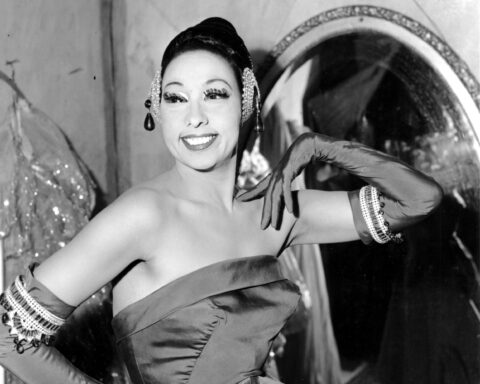By Joseph Ataman,
Black, American-born, a woman, and arguably best known for her exotic dancing: Josephine Baker hardly fits the profile of France’s historical heroes.
But today, the performer from Saint Louis, Missouri, was granted one of France’s highest honors: A tomb in the Pantheon in Paris, the country’s monument to its heroes.
There have been only 80 people granted the honor since the tradition began in Napoleonic times. Baker is the first Black woman honored at the Pantheon, according to the Elysee Palace. She is also only the sixth woman, which includes scientist Marie Curie and politician Simone Veil.

Baker — a dancer, singer and wartime spy — is a household name in France. Her scantily-clad dancehall routines — often playing on colonial tropes — are synonymous with the wild reverie of the 1920s.
Although less well-known in her American homeland, she was proud of her humble roots in Saint Louis and later in life became a fierce advocate for civil rights, speaking at the 1963 March on Washington.
On Tuesday afternoon, French President Emmanuel Macron spoke at a ceremony at the Pantheon to mark Baker’s interment. Though her body remains buried in Monaco at the request of her family, a coffin was entombed at the site bearing handfuls of dirt from four important locations in her life — Saint-Louis, Paris, Milandes — the site of her chateau home — and Monaco.
This is not the first time that the honor has been bestowed this way, according to the Elysee. French Resistance fighters Genevieve de Gaulle-Anthonioz and Germaine Tillion are represented by caskets with earth.
The date of her interment also holds significance, marking the anniversary of when she received French citizenship in 1937.
Macron tweeted a video celebrating Baker’s life Tuesday, in which he said she had “all the courage, all the boldness, she’s quite synthetic of what it means to be French.” Hailing her fight for universalism, her war-time acts, and her “absolute freedom,” Macron added in the video that Baker “is quite inspiring.”
The ceremony bore all the hallmarks of French pomp: A military orchestra, the rousing national anthem, and a choir of children singing one of Baker’s own songs, according to the Elysee.
The symbolic, tricolore-draped coffin was carried by six members of France’s air and space force, followed by another member of the Air Force carrying the five decorations that France bestowed upon Baker during her life. These include the World War II Resistance medal and the Knight of the Legion of Honor, one of the country’s highest awards.
While she died in 1975, much has been made of the decision by Macron to grant her this honor now.
For Macron, the occasion offers a chance to rally France around its pride of those who resisted the Nazi occupation in World War II, as well as address a long-standing deficit in the number of women, and people of color, who rest under the Pantheon dome.
As Baker’s coffin was brought to the steps of the Pantheon, a recording of her most famous song was played: “J’ai deux amours” (I have two loves: My country and Paris).


